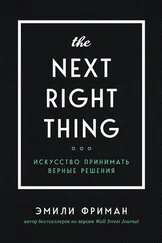The issue with social media
Nevertheless, the online adaption differs in many ways from the well-established protest ritual. The YouTube events ran much less smoothly than real-life PEGIDA marches. The use of the technology seemed unprofessional and confusing, namely because the organizers repeatedly had trouble coordinating the image and sound of up to five simultaneous speakers. ‘I am approaching the age of 50’, said Bachmann in apology.
Moreover, nobody knows the audience(s) of the livestreamed performances. Whereas the setting of the street demonstrations was quite straightforward—PEGIDA organizers and supporters on one side, counter-demonstrators on the other, and the police in between and surrounding the two—there was very little certainty about PEGIDA’s virtual company. Indeed, it is impossible to find out if the YouTube followers were more or less the same as those who joined the street protest. YouTube’s chat function also provided only limited insight: many chat participants seemed to be regulars, greeting other spectators as well as the organizers, commenting on the content of the speeches, and sharing their own political views. Most viewers, however, did not use the chat.
Ritualistic performance has its limits
For a long time, both interested observers and PEGIDA’s political opponents have been wondering why the movement survived even though many of its demands have found a parliamentary arm in the AfD. There is a good argument to make that PEGIDA has mainly endured due to the ritualization of its protest politics. 6Indeed, the street events constituted repetitive, highly standardized, and symbolically loaded performances in front of a physical audience which marked a shift from one state of being into another one; in PEGIDA’s reading: from ordinary citizens to political activists, revolutionaries, true democrats.
Specifically, the marches through the historically reconstructed centre of Dresden, passing some of its most picturesque buildings as well as small groups of noisy counter-demonstrators, were able to create feelings of positive identification and of power: notably the power to induce political change “like in 1989”. This ritualized format seemed to be able to keep constant mobilization levels over an extended amount of time.
Do the “social distancing” measures thus doom PEGIDA to decline? Probably not. Admittedly, the online events can hardly generate the same collective emotions and identity as they lack the communal performative element of taking to the streets. Yet, a new virtual ritual in PEGIDA’s protest politics might be underway. Considering the organization’s history of ritualized performance, it seems that the group will continue to mobilize in times of lockdown.
Sabine Volkis a Doctoral Fellow at CARR and a doctoral candidate at the Institute for European Studies at Jagiellonian University. This research is part of a project that has received funding from the European Union’s Horizon 2020 Research and Innovation programme, “Delayed transformational fatigue in Central and Eastern Europe: Responding to the rise of illiberalism/populism” (FATIGUE), under grant agreement No. 765224.
1Hans Vorländer, Maik Herold and Steven Schäller, PEGIDA and New Right-Wing Populism in Germany (Basingstoke: Palgrave Macmillan, 2018); Manès Weisskircher and Lars Erik Berntzen, “Remaining on the Streets. Anti-Islamic PEGIDA Mobilization and Its Relationship to Far-Right Party Politics,” in Radical Right “Movement Parties” in Europe , ed. M. Caiani and O. Císař (London: Routledge, 2019), 114–30.
2Mara Bierbach, “How East Germans Peacefully Brought the GDR Regime Down,” Deutsche Welle , October 8, 2019, https://www.dw.com/en/how-east-germans-peacefully-brought-the-gdr-regime-down/a-50743302.
3“Tausende protestieren gegen Höcke und Pegida,” February 17, 2020, https://www.sueddeutsche.de/politik/pegida-hoecke-dresden-protest-1.4802562.
4Sabine Volk, “Germany: Is the COVID-19 Pandemic Weakening the Far Right?,” openDemocracy , March 30, 2020, https://www.opendemocracy.net/en/countering-radical-right/germany-covid-19- pandemic-weakening-far-right/.
5Sabine Volk, “‘Silent Night, Holy Night’? The Populist Performance of Neo-Traditionalism and Classical Masculinity in PEGIDA’s Christmas Celebration,” Populism Europe , December 17, 2019, https://populism-europe.com/silent-night-holy-night-the-populist-performance-of-neo-traditionalism-and-classical-masculinity-in-pegidas-christmas-celebration/.
6Irene Greuer, “Politologe über Pegida: Ein Ritual der zornigen alten Männer,” Deutschlandfunk , August 23, 2018, https://www.deutschlandfunk.de/politologe-ueber-pegida-ein-ritual-der-zornigen-alten.862.de.html?dram:article_id=426271.
Europe’s Far-Right Fails to Capitalize on COVID-19
Jean-Yves Camus
Europe’s radical right parties have quickly understood the benefit they can derive from criticizing their respective governments in managing the COVID-19 health crisis. Their communication focuses on three main areas. First, they question the animal origin of the epidemic through the use of several conspiracy theories. Second comes the criticism of globalization presented as the root cause of the pandemic. And, finally, they criticize the threats that lockdowns and other measures, such as the wearing of face masks, impose on the individual freedoms of European citizens.
The conspiratorial mindset of the European radical right is evident in the current COVID-19 moment. Like other extremist milieus, the idea of a hidden cause according to which any historical event occurs is prevalent. The search for mysterious reasons that the powerful media and political elites would like to hide from the people is never far away in the far-right diagnosis of the origins of the pandemic. In particular, as the origin of the virus is still disputed in public discourse, the pandemic is the ideal issue for those who are prone to such conspiratorial thinking.
We shouldn’t get too carried away with ourselves here, however. Not all radical right actors have reacted to the pandemic with conspiracy theories. 1One of the most interesting issues is that some of them have reactivated the theme of the West having to fight communism, embodied no longer by the USSR but by China as a new bête noire. In April 2020 Swedish MEP Charlie Weimers, for example, accused China of using opacity and lies to downplay the scale of the epidemic, an attitude which he says stems from the command-and-control nature of communism itself. 2
Other parties or figures on the European radical right have raised questions not only about the responsibility of the Chinese government for a late and inappropriate response to the pandemic, but also put forward the idea that the virus escaped from a virology laboratory in Wuhan. This theory, propagated in mid-April 2020 by Professor Luc Montagnier, the winner of the 2008 Nobel Prize for Medicine, was relayed 3in France by the elected representatives of the National Rally (RN), Julien Odoul, and Gilbert Collard. The RN, however, did not fully follow in the footsteps of Professor Montagnier and called for the creation of an international commission of inquiry into the origins of the epidemic. 4
Added to this, the pandemic has allowed the European radical right to develop the notion that “elites” are using the health crisis to hasten in an authoritarian form of government. For example, Spain’s Vox MEP Jorge Buxadé accused President Pedro Sanchez’s left-wing government of authoritarianism when in June 2020, it withdrew from parliamentary control lockdown measures limiting freedom of movement 5. The RN soon after, published “The Black Book of the Coronavirus: From the fiasco to the abyss”, 6a brochure criticizing the French government’s handling of the COVID-19 crisis, accused the authorities of using ‘guilt, infantilization and threats’ against the French people in order to enforce a lockdown.
Читать дальше












